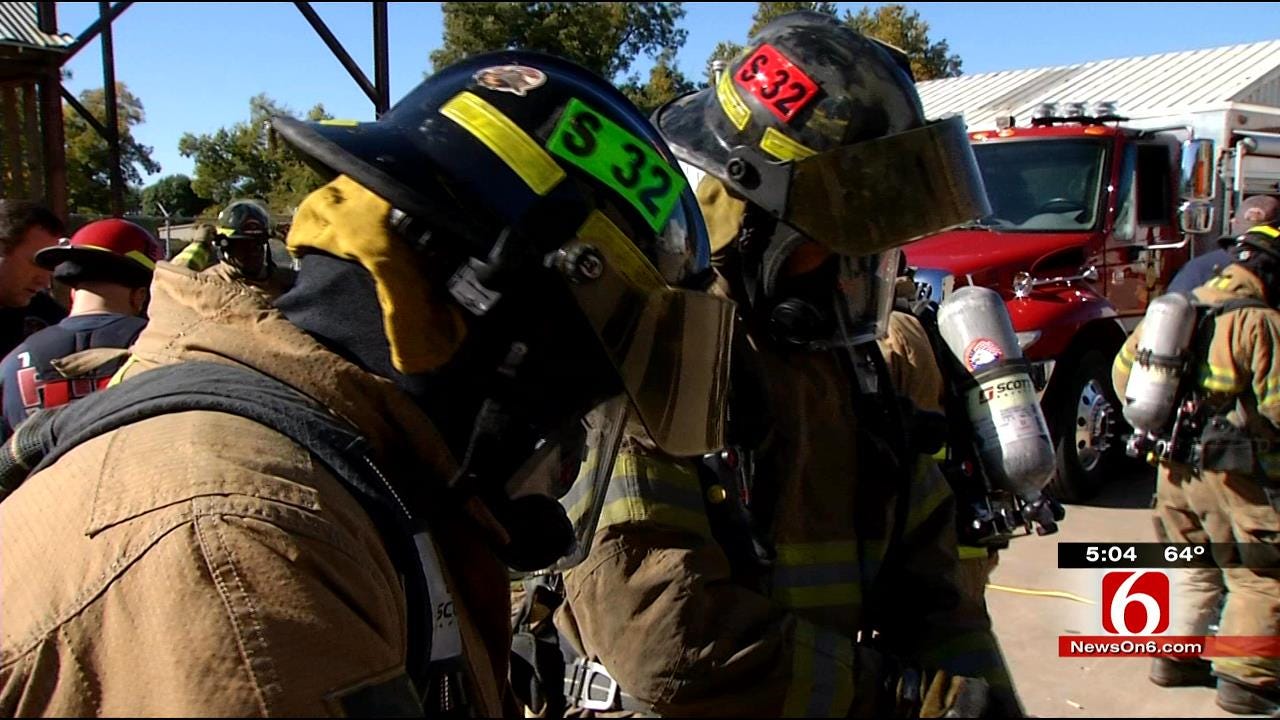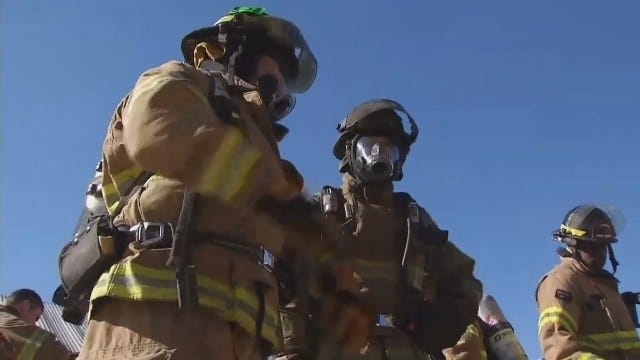Tulsa Firefighters Receive New Life-Saving Equipment
The folks at city hall showed off new air tanks and masks on Thursday morning.The new equipment gives firefighters more safety, and the air masks work better than the old ones.Thursday, November 6th 2014, 1:41 pm
Tulsa firefighters are training with new air masks and tanks that will help them work longer and stay safer while fighting fires.
The breathing equipment used by firefighters now is about 15 years old. It's at the end of its life and because it's critical, it's being replaced with the first money out of last year's bond issue.
Every one of Tulsa's firefighters is coming in for training so they can be fitted with the new gear.
The city bought new air tanks and face masks, and each one has to be tested in use.
The basic function is the same, but the new tanks supply more air than the smaller older tanks.
Fire Training Officer, Nate Morgans said, "You really get about 15 to 20 minutes of good solid work in a structure fire, versus now, it's a good 30 minutes of work."
With firefighters able to work longer it's more critical to monitor the air, and the new masks help with that with a readout that shows what's left.
"What we used to have is that, when the bottle got down to a quarter bottle a bell went off, and you knew it was time to get out," said Fire Training Officer, Bob Peters.
That didn't leave much room for error so it was a safety issue.
One thing that makes the new mask better is that it helps firefighters communicate.
With the old ones the sound was muffled, but with the new mask, even when it's on, you can clearly hear a firefighter on the radio.
"The clarity coming out of the mask, under any situation, is just a whole lot clearer," said Brian Burd with Tulsa Fire & Rescue.
That's especially important if a firefighter is in trouble, because the other firefighters can hear the call and communicate clearly inside a burning building.
Improvements also include new harnesses that are less likely to get tangled up.
The new technology comes at a cost however, it's about ten pounds heavier overall; but the face mask itself weighs less.
"It's a lot lighter, it's more sleek and fits to your face better,” said firefighter Alfred Cayasso.
It's going to take another two weeks to get all the firefighters fitted and trained and get the equipment switched out.
It's a $2.7 million upgrade that should have them covered for another 15 years.
More Like This
November 6th, 2014
November 13th, 2024
October 28th, 2024
October 17th, 2024
Top Headlines
January 13th, 2025
January 13th, 2025
January 13th, 2025
















